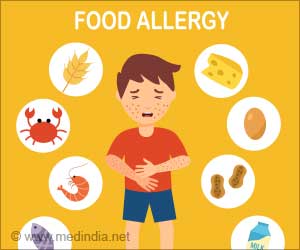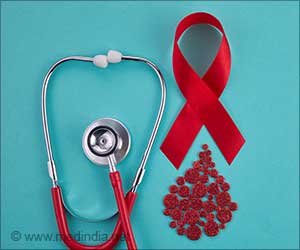Food allergy awareness week 2023 calls on people to act and make an impact, on behalf of the millions of people around the world that suffer from food allergies.
- Food Allergies are negative reactions of the body’s immune system to a particular food protein
- The only way to avoid a reaction is complete avoidance of the allergy-causing food
- Every year the second week of May is dedicated to raising awareness about food allergies
Celebrate Food Allergy Awareness Week as an #AllergyAlly
Go to source). This important effort was initiated in 1998 by the Food Allergy & Anaphylaxis Network.
What is a Food Allergy?
The body’s immune system is designed to fight infection. An allergic reaction occurs when the body falsely identifies a particular food as a harmful “invader”, reacting against it with a process that begins with the production of allergic antibodies called Immunoglobulin E (IgE).Milk, eggs, peanuts, shellfish, tree nuts, fish, soy, and wheat are common food substances that can cause an abnormal immune response. Symptoms can vary from mild swelling, skin rash, to breathing difficulties and vomiting or stomach pain. In some instances, it can also lead to life-threatening reactions such as a drop in blood pressure or anaphylactic shock.
Food allergies are common. Some estimates suggest that up to 5% of all adults and 8% of children worldwide are affected. The numbers continue to rise every year, possibly because of dietary, lifestyle, and environmental changes.
Family history appears to increase the chance of developing food allergies. People prone to allergic reactions, like eczema or hay fever are also at greater risk of food allergy (2✔ ✔Trusted Source
An allergy occurs when your body's natural defenses overreact to exposure to a particular substance, treating it as an invader and sending out chemicals to defend against it.
Go to source).
Food allergies are not the same as food intolerances, and food allergy symptoms overlap with symptoms of other medical conditions. It is therefore important to confirm food allergy confirmed by an appropriate evaluation with an allergist.
Learn the Food Allergy Facts
A simple statement can be enough to change the way one thinks about food allergies and anaphylaxis. It all starts with education!- More than 170 foods have been reported to cause allergic reactions
- Approximately 32 million people in the United States have food allergies
- Nearly 11% of people aged 18 or older and more than 26 million adults have food
- Allergies
- More than 38,000 children or nearly 8%, have food allergies. That is 1 in 13 children, or roughly 2 in every classroom (3✔ ✔Trusted Source
The Economic Impact of Childhood Food Allergy in the United States
Go to source) - For every three minutes, a food allergy reaction sends someone to the emergency room
- More than 40% of children with food allergies have experienced a severe allergic reaction such as anaphylaxis
- It is possible to have anaphylaxis without any skin symptoms, such as rash or hives
- Many fatal food allergy reactions are triggered by food consumed outside the home
- Compared to non-Hispanic white children, African American children are at significantly greater risk of developing food allergies
How are Food Allergies Treated?
Avoidance of specific food allergens, as well as the use of epinephrine to treat severe reactions associated with accidental exposures, have been the standard of care. However, avoidance can be difficult to achieve, so is not a perfect solution for many.This means medical treatments, such as oral immunotherapy, may be needed to reduce the risk of allergic reactions, including anaphylaxis, associated with food allergies.
Beyond the Bite: Building Understanding and Support for Food Allergy Awareness Week
There are several easy ways that you can help build understanding and support during Food Allergy Awareness Week and become a part of the food allergy community and its advocacy efforts.Be proud to share #CelebratingTealMoments for the Food Allergy Awareness Week campaign this year.
May is the time to celebrate and joyfully raise food allergy awareness. Let us show how we love people with food allergies by ‘Celebrating Teal Moments’ during Food Allergy Awareness Week (4✔ ✔Trusted Source
Food Allergy Awareness Initiatives
Go to source). Share your passion by updating your social media profiles or covers with #CelebratingTealMoments.
Raise awareness in the community and send a press release to local newspapers and/or schedule a radio interview. Request a proclamation from your governor or local elected official(s). Arrange for a public signing and/or photo opportunity and share the event with local media (papers, TV, radio, etc.).
Print out and distribute FAACT’s Resources Flyer in your community. Encourage local allergists and pediatrician’s offices to distribute the flyer to their patients.
Encourage school professionals, healthcare professionals, restaurant & food service personnel, family, teens, and friends to distribute the flyer throughout their networks. Post a blog about Food Allergy Awareness Week. Start a food allergy support group! Visit FAACT’s support group development section to get started.
Host a fundraiser and organize simple activities such as a car wash, local food allergy walk, book sale, and raise $1 a day to donate for future education and advocacy efforts.
So join the awareness campaign and make yourself a part of Food Allergy Awareness Week.
References:
- Celebrate Food Allergy Awareness Week as an #AllergyAlly - (https://www.foodallergy.org/our-initiatives/awareness-campaigns/food-allergy-awareness-week)
- An allergy occurs when your body’s natural defenses overreact to exposure to a particular substance, treating it as an invader and sending out chemicals to defend against it - (https://acaai.org/allergies/allergic-conditions/food/)
- The Economic Impact of Childhood Food Allergy in the United States - (https://jamanetwork.com/journals/jamapediatrics/fullarticle/1738764)
- Food Allergy Awareness Initiatives - (https://www.foodallergyawareness.org/education/food-allergy-awareness-initiatives/food-allergy-awareness-initiatives/)
Source-Medindia
















